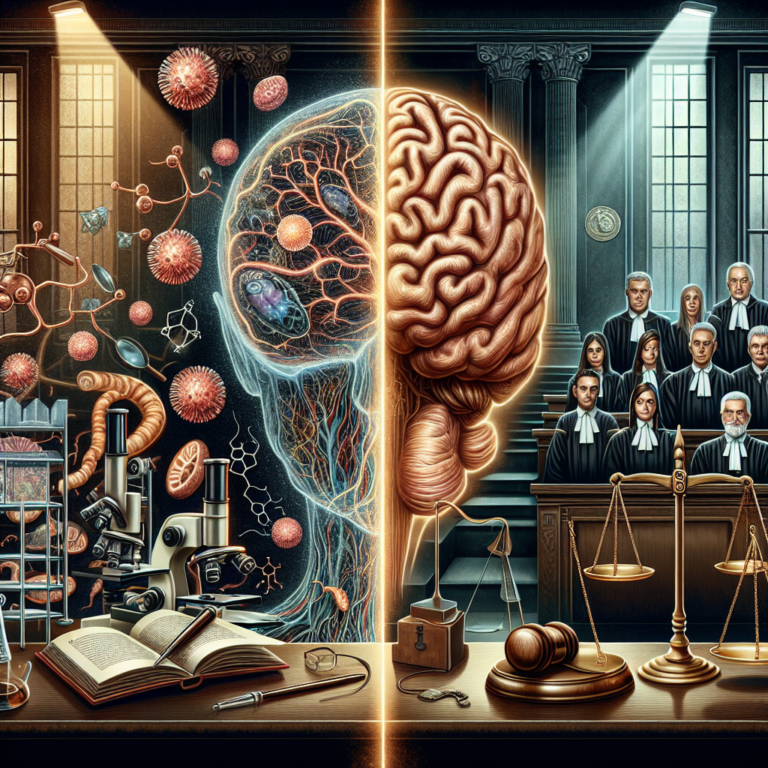
Introduction
Imagine sitting in a therapist’s office, recounting a traumatic experience only to discover later that the memories may be distorted or entirely fabricated. This chilling scenario highlights a profound issue in the realm of mental health: False Memory Syndrome. Revisiting the Past: The Implications of False Memory Syndrome in Therapy is not just a fleeting topic; it’s a pressing concern that shapes the lives of countless individuals. Understanding this syndrome’s implications can empower both therapists and clients to navigate the delicate labyrinth of memory, truth, and therapeutic healing.
What is False Memory Syndrome?
False Memory Syndrome (FMS) refers to the phenomenon in which individuals recall memories that are either distorted or fabricated. In therapy, this can lead to the creation of vivid, confident, and detailed recollections of events that never actually happened. Recollections may feel real, but this does not guarantee their accuracy. As we explore Revisiting the Past: The Implications of False Memory Syndrome in Therapy, we will delve deeper into the nuances of FMS, its implications on therapeutic practice, and its effect on our understanding of human psychology.
The Science Behind Memory
Memory Formation: A Complex Process
Memory is not a perfect recording of events; rather, it is a reconstructive process. Every time we recall an event, we can unknowingly alter our perceptions, leading to the formation of false memories. The mechanisms behind this transformation are influenced by various factors, including:
- Emotions: Trauma can shape memories, making them more prone to distortion.
- Suggestion: External cues, such as leading questions from a therapist or family members, can create or modify memories.
- Time: As time passes, the likelihood of alteration increases, especially if the memory is revisited multiple times.
The Role of Therapy in Memory Reconstruction
Therapeutic techniques often incorporate revisiting memories as a way to address and heal past traumas. Techniques like guided imagery or hypnotic suggestion can sometimes enhance memory but, unfortunately, they can also unwittingly contribute to the creation of false memories.
Table 1: Factors Influencing Memory Accuracy
| Factor | Influence on Memory |
|---|---|
| Emotions | Heightened emotional states can distort memories. |
| Suggestibility | External cues can implant or alter memories. |
| Time | The longer the interval, the more likely memory distortion occurs. |
| Contextual cues | Similar environments or discussions can reinforce false memories. |
Case Studies: Real-World Implications of False Memory Syndrome
Case Study 1: The McMartin Preschool Trial
In the late 1980s, the McMartin Preschool case became a defining moment for FMS. Allegations of abuse led to a protracted legal battle, with many “repressed memories” surfacing during therapy. Investigations revealed that many of the recalled memories were the result of suggestion rather than reality. This case highlights the need for caution and rigorous investigation within therapeutic settings.
Analysis: The McMartin case serves as a warning about the dangers of suggestive questioning in therapy. Practitioners must recognize the potential for creating false memories, intentionally or unintentionally.
Case Study 2: The “Satanic Panic” of the 1980s and 1990s
During this period, numerous allegations of satanic ritual abuse emerged, predominantly fueled by recovered memories from therapy. Many individuals later recanted their accusations, recognizing them as false memories shaped by therapy.
Analysis: The fallout from this era underscores the far-reaching consequences of false memories, impacting not only individuals but entire communities. It demonstrates the ethical responsibility that therapists hold in their practice.
The Ethical Considerations in Therapy
Therapist Responsibility
Therapists play a crucial role in the mental health landscape. Their approach to memory recovery can significantly influence a client’s narratives. It is imperative that therapists maintain a balanced perspective, ensuring they do not unintentionally implant false memories.
Establishing Best Practices
In light of the implications surrounding Revisiting the Past: The Implications of False Memory Syndrome in Therapy, the following best practices are essential:
- Client-Centered Approach: Prioritize the client’s perspective and experiences without imposing interpretations.
- Clarification Techniques: Utilize techniques that promote recall without suggestion.
- Documentation: Keep detailed records of therapy sessions to ensure transparency and accountability.
Table 2: Best Practices for Preventing False Memory Formation
| Best Practice | Description |
|---|---|
| Client-Centered Therapy | Focus on the client’s narrative and experiences. |
| Avoid Leading Questions | Ask open-ended questions to promote genuine recall. |
| Foster an Environment of Trust | Create a safe space for clients to share their feelings. |
The Impact of False Memory Syndrome on Patients
Emotional Effects
For patients, the implications of discovering that cherished memories are false can be devastating. Feelings of betrayal, confusion, and intensified trauma can surface, complicating the healing process. Individuals may struggle with self-trust as their perceptions of reality come into question.
Legal Ramifications
Many cases of FMS have led to wrongful accusations and convictions, impacting not only the accused but also the individuals making false claims. The legal system’s entanglement with therapeutic practices raises questions about the reliability of memory recall in court settings.
Moving Forward: Towards a More Informed Therapeutic Practice
Training and Education
To mitigate the impact of False Memory Syndrome, continuous education for mental health professionals is essential. Understanding the intricacies of memory formation and distortion should be a core component of therapeutic training.
Multidisciplinary Approaches
Incorporating insights from psychology, neuroscience, and law can foster a more robust understanding of memory in therapeutic contexts. Collaborations among professionals can yield comprehensive strategies to address FMS effectively.
Empowering Clients
Clients should be educated about memory’s malleability. By understanding that memories can be influenced by various factors, they become more critical consumers of therapeutic narratives and more actively engage in their healing journeys.
Conclusion
Revisiting the past can be a vital component in the therapeutic process, but the implications of False Memory Syndrome underscore the need for caution and understanding. As we journey through the complexities of memory, it’s clear that we must remain vigilant. Both therapists and clients hold the power to shape the narrative, but with this power comes responsibility.
By adhering to best practices, training, and education, we can work towards a therapeutic environment that promotes healing while respecting the fragile nature of memory. The road ahead is one of mutual support and understanding. Let us move forward with diligence, compassion, and a commitment to truth.
FAQs
1. What is False Memory Syndrome?
False Memory Syndrome is a condition where individuals recall events that did not occur or distort memories of actual events, often a byproduct of therapeutic techniques.
2. How can therapists prevent the creation of false memories?
Therapists can avoid leading questions, use client-centered techniques, and cultivate an open dialogue that respects the client’s narrative.
3. Are false memories harmful?
Yes, false memories can lead to significant emotional distress, confusion, and potential legal implications, particularly if they lead to wrongful accusations.
4. What should clients do if they suspect their memories are false?
Clients should have an open discussion with their therapists, exploring the accuracy of their memories and striving for clarity in their experiences.
5. Can memories change over time?
Absolutely. Memories are reconstructive and can be changed by various factors, including emotional states, suggestions from others, and the passage of time.
Revisiting the past is laden with complexities; understanding the implications of False Memory Syndrome in therapy is essential for both therapists and clients. The journey of healing is one that must prioritize both truth and empathy, creating pathways for authentic growth and recovery.















